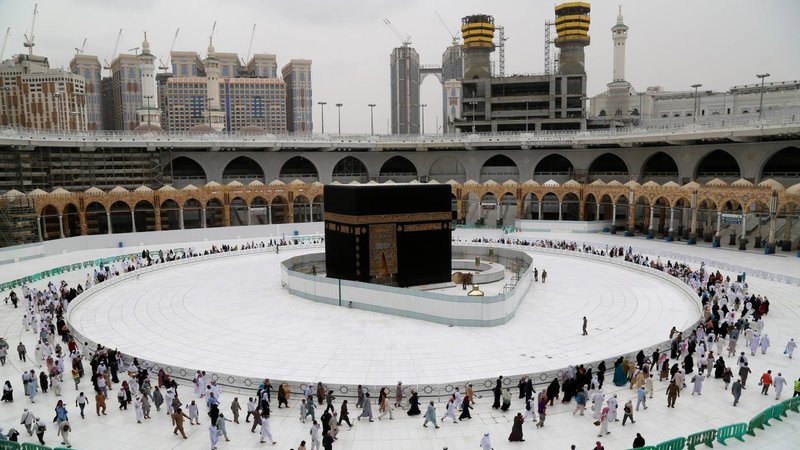Muslim pilgrims circled Islam’s holiest site along socially distanced paths Sunday in the final ritual of the hajj, the smallest in modern history as Saudi authorities sought to prevent a coronavirus outbreak.
Only up to 10,000 Muslims took part in the hajj, a far cry from the 2.5 million who took part in the five-day annual pilgrimage last year.
Masked pilgrims threw pebbles at a wall symbolizing Satan in Mina, close to the holy city of Makkah, on the final day of hajj, state media reported.
Instead of gathering the pebbles themselves as in past years, they were handed them bagged and sterilized by hajj authorities, to protect against the novel coronavirus.
Pilgrims returned to the Grand Mosque in Makkah later Sunday to perform a final “tawaf”, or circling of the Kaaba — a cubic structure towards which Muslims around the world pray.
Holding the ritual in the shadow of the pandemic required “double efforts” by Saudi authorities, King Salman said on Friday after being discharged from hospital following surgery to remove his gall bladder.
“The hajj this year was restricted to a very limited number of people from multiple nationalities, ensuring the ritual was completed despite the difficult circumstances,” said the kingdom’s 84-year-old ruler.
Health authorities said no coronavirus cases were reported at the holy sites during the hajj.BSS/AFP

